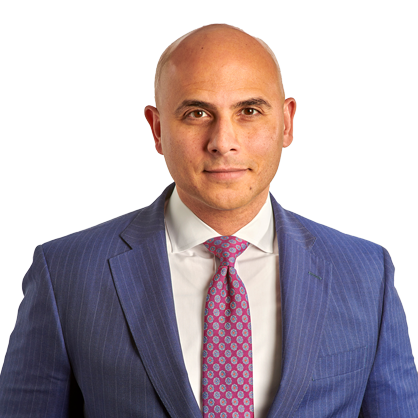Insights
Thought Leadership
White Collar Roundup - October 2018
U.S. Attorneys' Manual Gets a New Name (And a Makeover)
Federal prosecutors have long been guided by the U.S. Attorneys' Manual (USAM), which both explained the organization of the Department of Justice (DOJ) and gave guidance about items ranging from the principles of prosecution to how to comply with the government's obligations under Brady. On September 26, the USAM was rechristened the Justice Manual. The note accompanying the manual reads, "This is the current and official copy of the Justice Manual (JM). The JM was previously known as the United States Attorneys' Manual (USAM). It was comprehensively revised and renamed in 2018. Sections may be updated periodically. In general, the date of last revision will be noted at the end of each section. For prior versions of the USAM, visit the USAM Archive." As we reported here, Deputy Attorney General Rod Rosenstein has derided "management by memo" since joining the administration. Undoubtedly, the changes in the Justice Manual will reflect that view.
DOJ Seeks to Partner, Not Fight, With Businesses
In this speech at the Fifth Annual GIR New York Live Event, Deputy Assistant Attorney General Matthew S. Miner told the audience the DOJ wants to be a partner to businesses, not an adversary. To start, he re-emphasized the usefulness of voluntary self-disclosure for Foreign Corrupt Practices Act (FCPA) violations. He noted that DOJ had declined several prosecutions based on self-disclosures and added, "Companies making the decision of whether to voluntarily disclose should consider these cases, and recognize the significant benefits they can achieve through good corporate behavior under the [self-disclosure] Policy." He reminded his audience that in March, "then-Acting Assistant Attorney General John Cronan announced that the Criminal Division would consider the FCPA Corporate Enforcement Policy as 'nonbinding guidance' in all Criminal Division corporate criminal cases, not just those involving violations of the FCPA." After noting that those at the DOJ "remain steadfast in our commitment to holding those engaged in wrongdoing accountable," he hoped businesses would "view those of us at the Department of Justice as partners, not adversaries."
"Bread" and "Cheesesteaks": Insider Trading and the NFL
This story is another in the line of cases of celebrities and sports stars being charged with insider trading as well as an example of additional legal trouble for the often-in-the-headlines NFL. Mychal Kendricks, a member of last year's Super Bowl champion Philadelphia Eagles team, pleaded guilty to insider trading with Damilare Sonoiki, a Harvard-educated former Goldman Sachs analyst and writer for the hit ABC TV show Black-ish. They used coded language including "bread" and "cheesesteaks" to disguise their activities, but failed. Sonoiki tipped off Kendricks that a computer software manufacturer and three other companies were going private or being acquired, making Sonoiki an "insider" under the securities laws. Kendricks, the tippee, transferred $80,000 into a new brokerage account and then had Sonoiki purchase stock in those companies, ultimately netting about $1.2 million. Kendricks pleaded guilty earlier in September, and although he faces up to 25 years in prison, he was still signed by a new team, the Seattle Seahawks. For the SEC complaint, click here.
According to this article, U.S. investigators failed in a recent courtroom effort to force Facebook to wiretap voice calls over its Messenger app in a closely watched test case, according to two people briefed on the sealed ruling. The Messenger app encrypts conversations between the participants, and the government apparently sought to wiretap calls over the app between individuals allegedly involved in criminal activity. The government apparently sought to compel Facebook to allow the interceptions, but the court denied its motion. Perhaps more will come of this, perhaps not. But one thing is clear: Encryption of communications continues to be a thorny issue for law enforcement.
Amazon Employees Investigated for Selling Data
As reported here, giant retailer Amazon is investigating reports of some of its employees unlawfully selling confidential internal data and other services. According to the article, in May the retailer received a tip that this practice was taking place in China. It appears that sellers in China who were looking to remove negative reviews of products approached Amazon employees through WeChat and offered cash payments of between $80 and $2,000 to perform the service. Amazon released a statement, "We hold our employees to a high ethical standard, and anyone in violation of our Code faces discipline, including termination and potential legal and criminal penalties." It also noted, "We have zero tolerance for abuse of our systems, and if we find bad actors who have engaged in this behavior, we will take swift action against them, including terminating their selling accounts, deleting reviews, withholding funds, and taking legal action."
Convicted Chiropractor Sues Counsel for Rejecting No-Jail Plea Offer
Convicted chiropractor and insurance fraudster Steven Paul sued his defense counsel for legal malpractice. According to his complaint, Paul was the target of an insurance-fraud investigation that began in about 2009. In the early stages of the investigation, before Paul was indicted, his attorneys allegedly advised him that if he cooperated with the government's investigation of others involved in the alleged scheme, "he would be rewarded with immunity from personal prosecution." Paul claims he helped with the investigation, and his attorneys told him they were in touch with the prosecution and that he was "'on track' to receive an immunity agreement" from the government. Paul alleges, however, that his attorneys knew the prosecutors wouldn't offer an immunity agreement and instead would be willing to enter into a deferred prosecution agreement with Paul. Paul alleges that one of his lawyers was "personally offended" that the government wouldn't offer immunity and, without advising Paul, "flatly rejected the U.S. Attorney's offer of deferred prosecution." Later, the government offered a plea agreement to Paul, who had to plead guilty to insurance fraud. Prior to sentencing, Paul made a motion to withdraw his plea, arguing he received ineffective assistance of counsel. After an evidentiary hearing, where his lawyers conceded their failures, the court denied his motion. Paul was sentenced primarily to 20 months of incarceration and was ordered to pay more than $1 million in restitution. He then brought the instant lawsuit, which is pending in Illinois state court.



